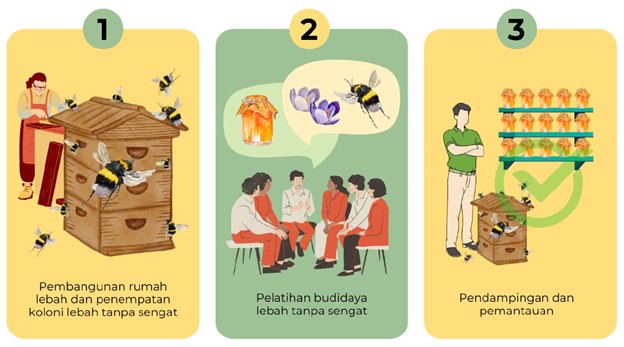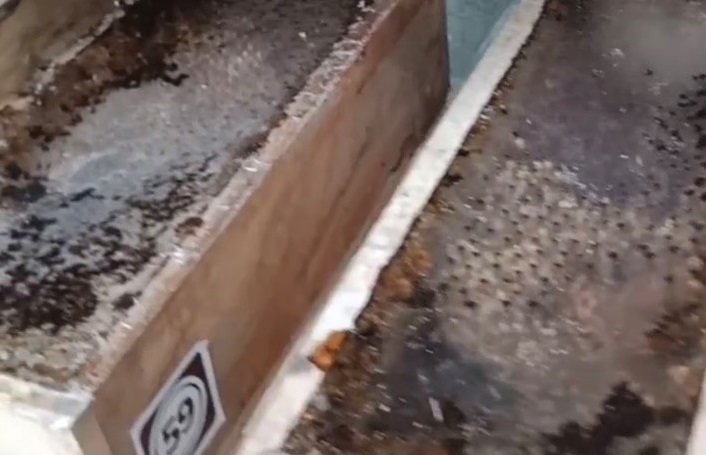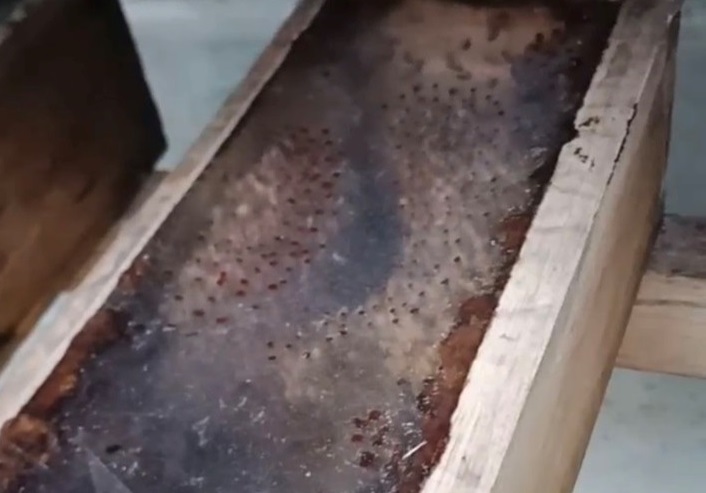The University of Indonesia (UI) is implementing the EduBee Program to enhance ecological education and entrepreneurship based on stingless beekeeping at Pesantren Raudhatul Qur’an 1 in Klaten. The program began in February 2025 and is part of the Seed Funding for Associate Professors under the Community Engagement Grant Scheme, proposed by Dr. Tania Surya Utami and her team from the Bioprocess Engineering Study Program, Department of Chemical Engineering, Faculty of Engineering (FT) UI.
According to Dr. Tania, stingless beekeeping offers several advantages, especially in terms of safety, economic value, and environmental benefits. Stingless bees do not sting, making them safe to raise in various environments, including urban areas. These bees also produce high-value products, including honey, propolis, and pollen.
A total of 60 stingless bee colonies have been placed in two locations: the pesantren area and a sand-and-stone depot on the slopes of Mount Merapi. Monitoring results show that all colonies are active and healthy. Foraging activity occurs consistently from morning until late morning. Colonies at the sand depot site show the fastest development, indicating the potential of the area as an optimal beekeeping location.
“To carry out this program, 36 students from the pesantren were involved in training and managing the bee colonies. This activity not only imparts knowledge about the ecological role and economic potential of stingless bees but also instills practical beekeeping skills that can be developed independently,” said Dr. Tania.
Meanwhile, a representative from Pesantren Raudhatul Qur’an Klaten, Ustadz Zaim, stated that the program offers numerous benefits, including increased environmental awareness among students, the creation of new business opportunities, and the provision of livestock management skills. The growing bee population also supports the pollination process, enhancing the productivity of nearby crops.
“The EduBee program inspires students and offers an educational experience, especially in understanding the importance of bees within ecosystems. Through this program, students gain insights into entrepreneurship grounded in environmental conservation. We hope the program continues and provides tangible benefits not only for our pesantren but also for others across Indonesia,” said Ustadz Zaim.
In addition to its educational and ecological benefits, the EduBee program has the potential to stimulate economic activity within pesantren communities. By developing stingless bee colonies, pesantrens can establish sustainable, independent business ventures, create job opportunities, and strengthen their financial resilience. This model can be replicated in other pesantrens, becoming a catalyst for eco-based economic growth and local community empowerment.
In recognition of this community engagement initiative, the Dean of FTUI, Prof. Kemas Ridwan Kurniawan, S.T., M.Sc., Ph.D., expressed his appreciation to all UI members involved. He stated, “The EduBee program demonstrates FTUI’s commitment to integrating education, research, and community service in creating sustainable, impactful solutions. Through this initiative, we aim not only to strengthen entrepreneurial education but also to contribute to the preservation of local ecosystems across Indonesia.”
***
Public Communications Office
Faculty of Engineering Universitas Indonesia



